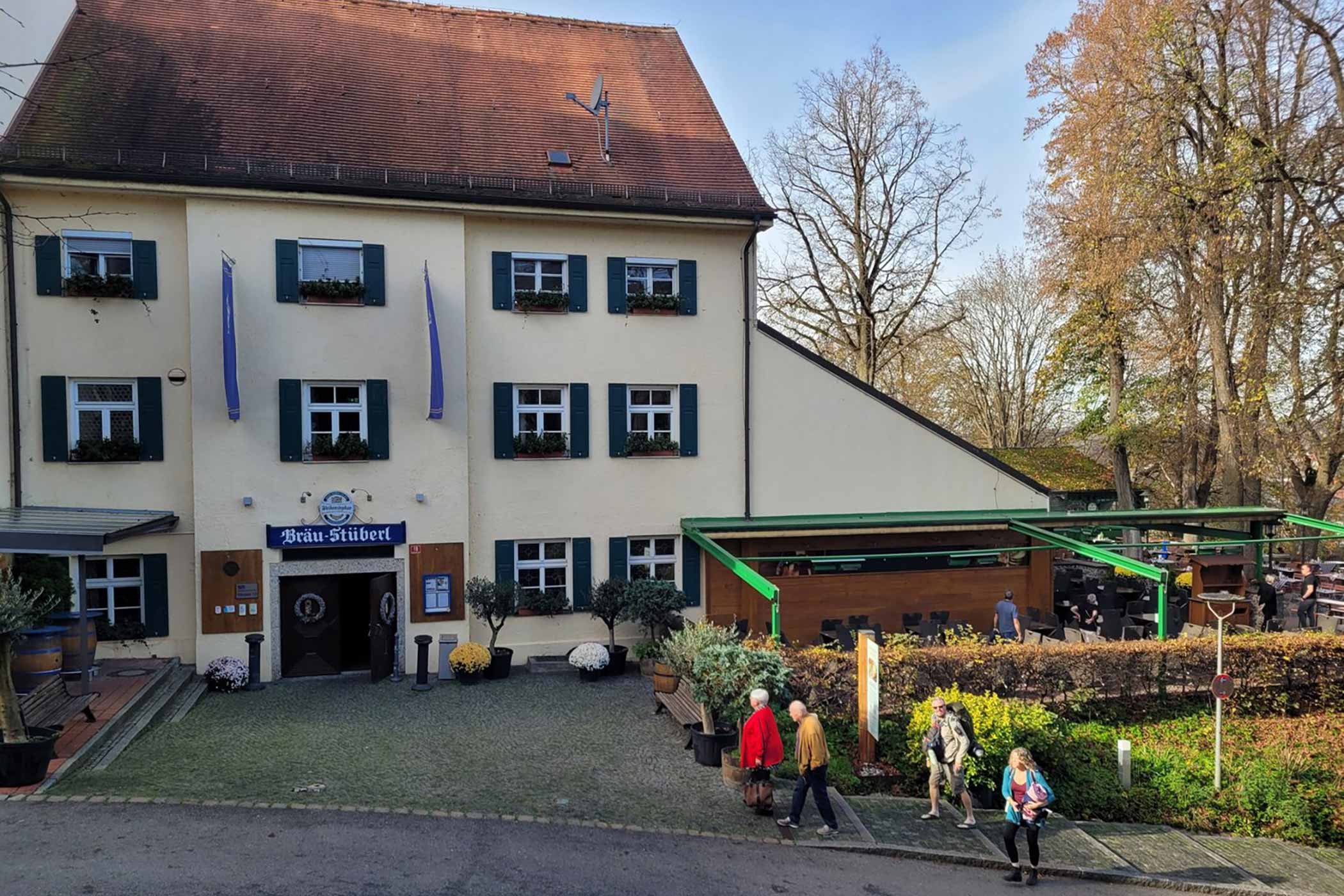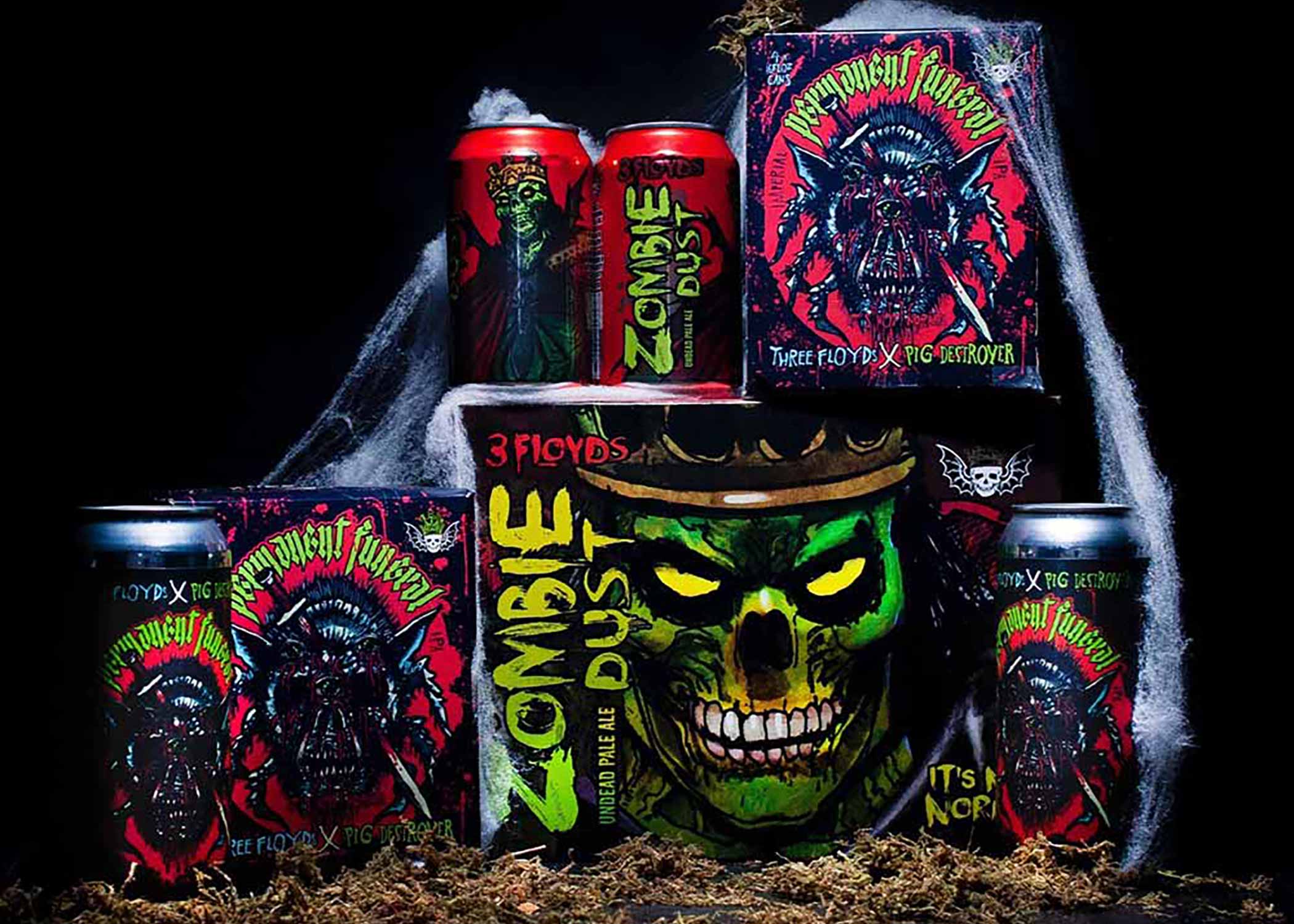Shop
The Best Breweries to Visit in Munich, Germany
A special thanks to Sebastian Hohentanner (@beerbasti) for his extensive beer-focused recommendations in and around Munich.
Looking For More Travel Guides?
France’s Best-Kept Beer Secret: 48 Hours Drinking and Eating in Lille
Munich, Germany, along with the greater Bavarian region, contains some of the world’s most famous breweries. Many of the German beer styles that drinkers across the globe know originated at these famous breweries.
Are you heading to Munich for the 189th Oktoberfest? Or just dreaming about going next year? We’ve got you covered!
While exploring these historically rich locations should be on any beer lover’s bucket list, there is a growing depth to Munich’s beer scene, offering beers that range from traditionally inspired to completely different altogether. Here’s a deep look at one of the world’s best places to visit for beer.
The Core Three Breweries to Visit in Munich
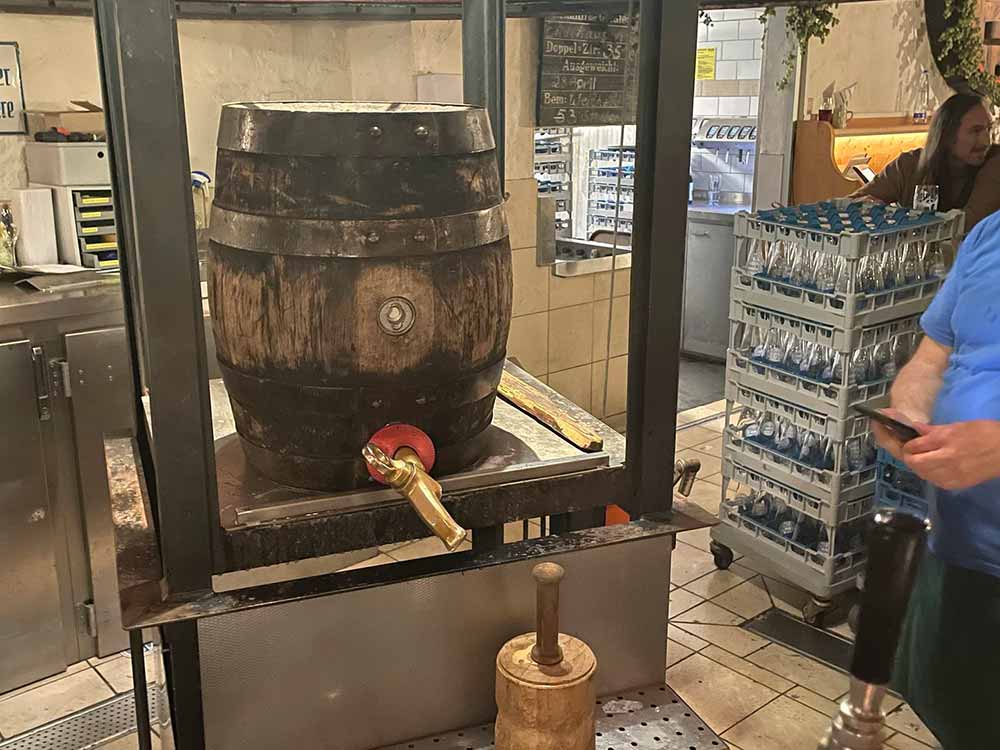
Helles poured from a barrel that’s replaced by a hand-operated elevator once it’s empty at Augustiner’s Bräustuben beer hall | Photography courtesy of Ryan Pachmayer
When visiting Munich proper, people mention three breweries time and time again as “the” place to go.
Augustiner-Bräu München has two locations, both near Munich’s Hauptbahnhof, or Central Station.
Augustiner-Keller is an impressive building with a variety of gorgeous rooms. The vaulted Lagereller is most impressive, located underneath the building, with striking red bricks surrounding wooden benches. The location is probably most famous for its biergarten, however, which boasts a capacity of about 5,000 patrons and is quite a sight to see on a weekend afternoon in the summer. Every evening, you can find the famous Edelstoff beer poured straight from a barrel.
Augustiner has a second location, at its actual brewery location, called the Bräustuben. The beer hall is the place to be, and anywhere near the copper-kettle bar is ideal. There, you can watch the helles poured from the barrel, pour after pour. When the barrel kicks, a bell rings, and someone brings up a new full barrel via a hand-operated elevator.
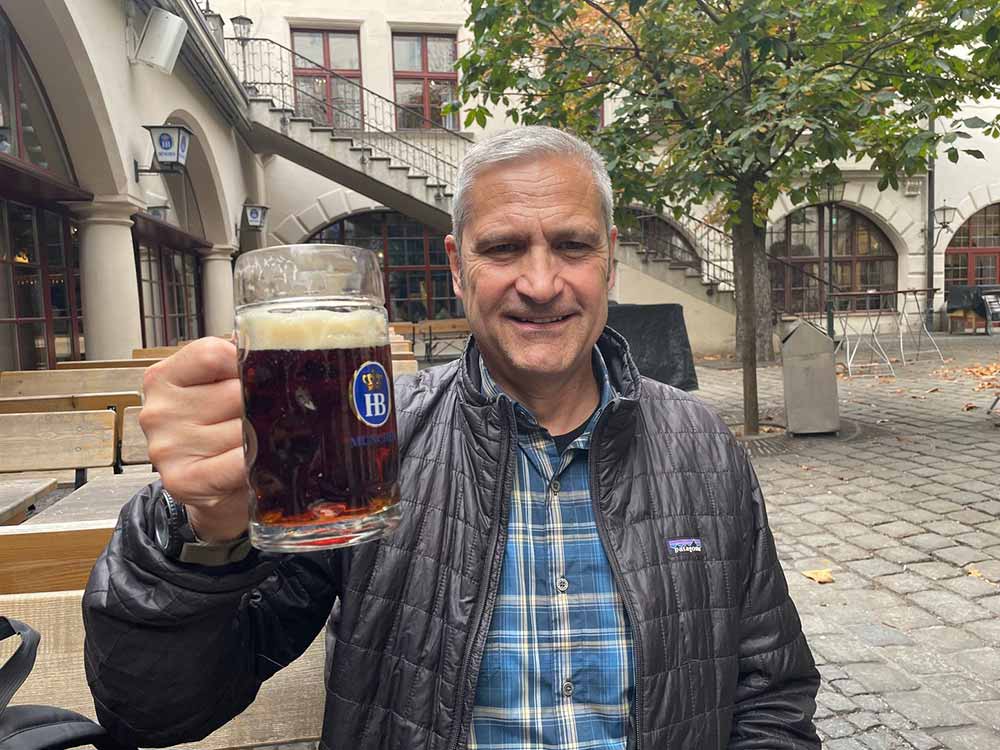
Hofbräuhaus | Photography courtesy of Ryan Pachmayer
Hofbräuhaus is another famed institution in Munich. The German Bavarian state-owned brewery has a massive beer hall in the Old Town with a capacity of well over a thousand people—a capacity that is regularly needed. The beers are excellent, and the atmosphere is lively.
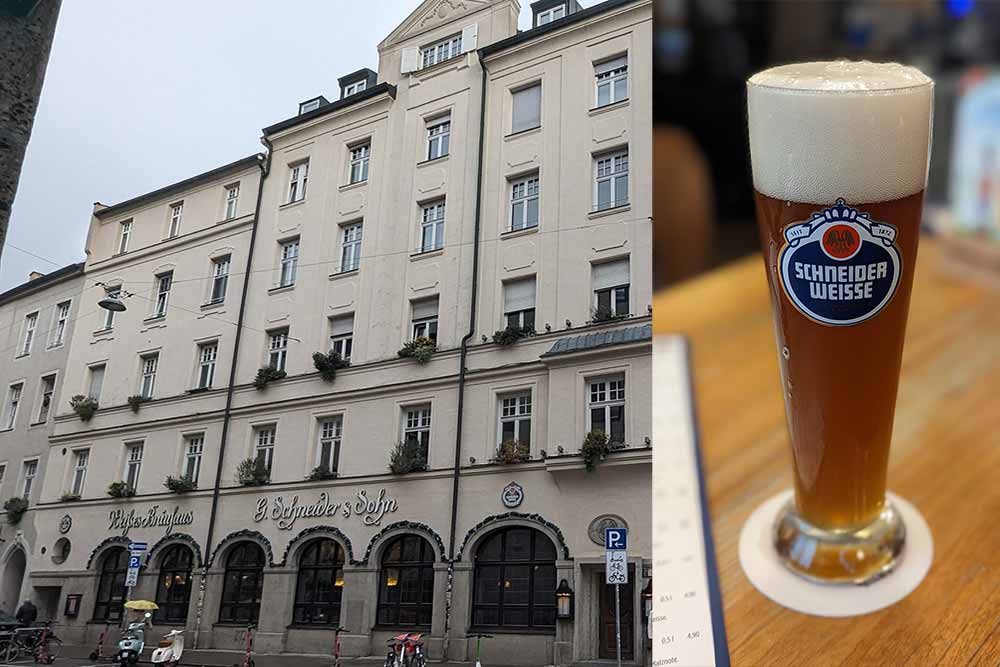
Schneider Bräuhaus Original | Photography courtesy of Ryan Pachmayer
If you’re looking for some of the world’s most widely acclaimed wheat beers, look no further than the Schneider Bräuhaus. Whether you’re after the Original, the newer Hopfenweisse, or the stronger, famed weizenbock Aventinus, make yourself comfortable and work through the expansive list of beers. If you’re in mixed company (read: you’re with people who don’t like weissbier), Schneider recently added an excellent helles to the lineup.
Destination Breweries to Visit in Munich
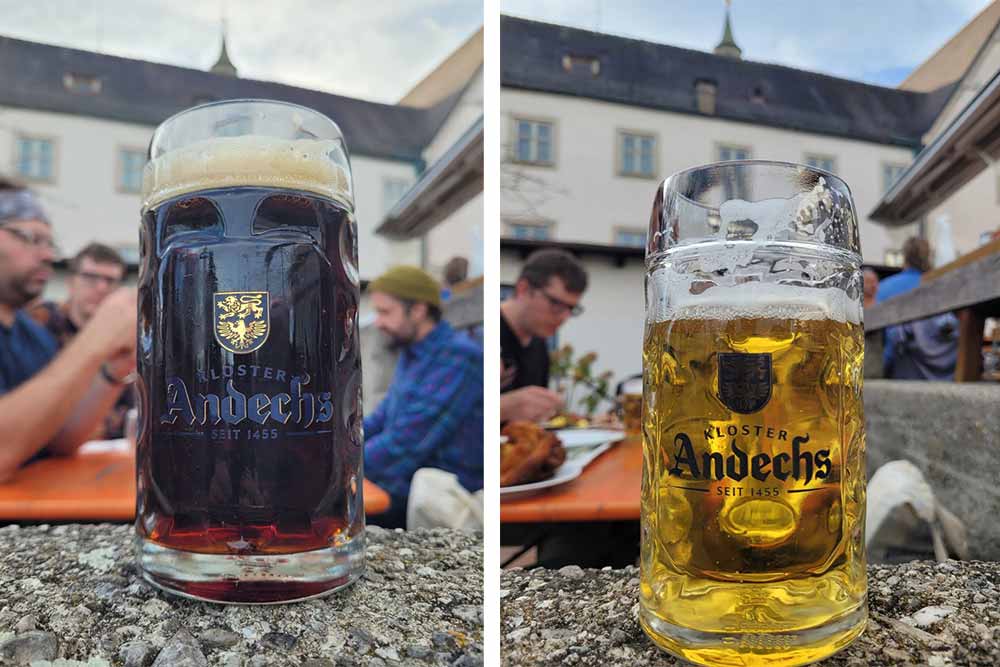
Andechs Hell and Doppelbock Dunkel | Photography courtesy of Ryan Pachmayer
Not everything is close to Central Station; that would be too easy. The holy ground for most beer lovers, literally, as it’s one of the few remaining working monasteries, Klosterbrauerei Andechs is about an hour by train to the south.
Perched on a prominent hill, the beer garden is among the best places in the world to drink a beer when the weather is right.
It’s not unusual to only find a pair of beers available, often the Hell and the Doppelbock Dunkel. Even if only one were available, this would still be among the most popular destinations for beer lovers visiting Germany.
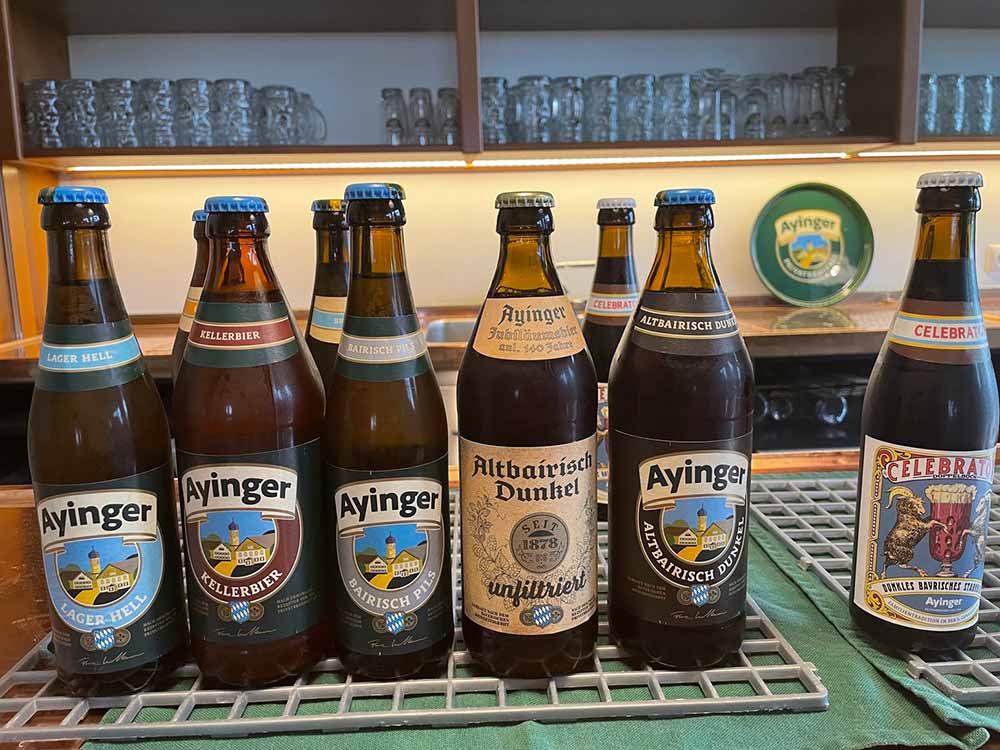
Range of Ayinger beers | Photography courtesy of Ryan Pachmayer
Ayinger Privatbrauerei is less than an hour southeast of Munich. Set in the picturesque village of Aying, the modern brewhouse is making some fantastic beer. Between the unfiltered dunkel in the restaurant, the kellerbier, the Jahrhundert export, a pils, and several other beers, it’s a place to come thirsty enough to take on a large lineup of world-class lagers.
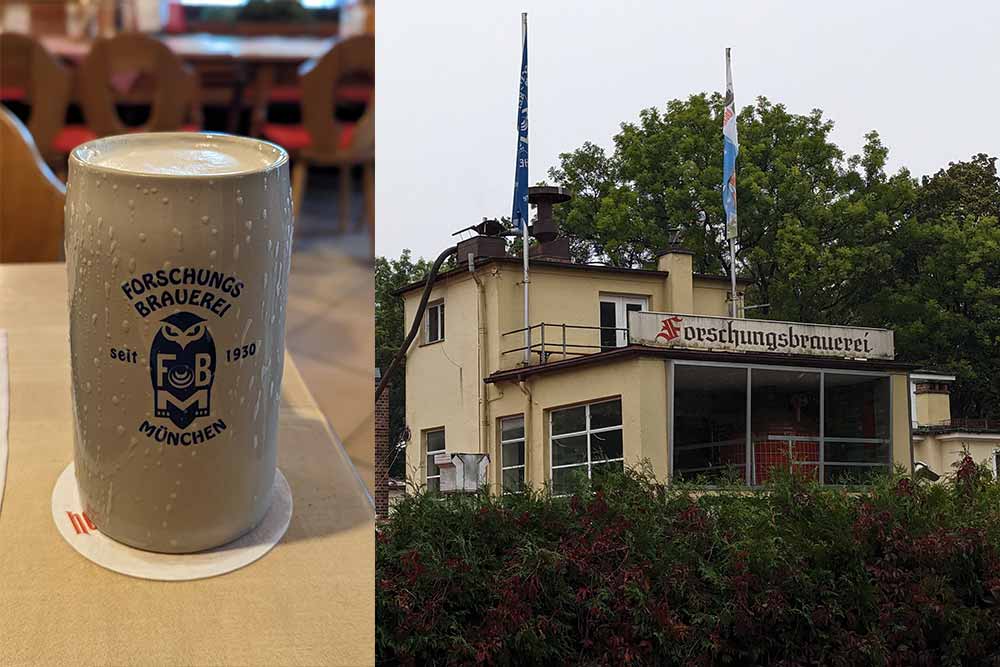
Forschungsbrauerei | Photography courtesy of Ryan Pachmayer
Less than a ten-minute walk from a train stop on the way to Ayinger is Forschungsbrauerei. This is an interesting, smaller brewery with a building that looks like it belongs further east in Europe. Due to canceled trains, I only had time for a single beer here, but the export was a very lively beer with honeyed malt, light fruity esters, perfume-like hops, and a hint of sulfur. It all worked well together, leaving me curious to try the rest of the lineup.
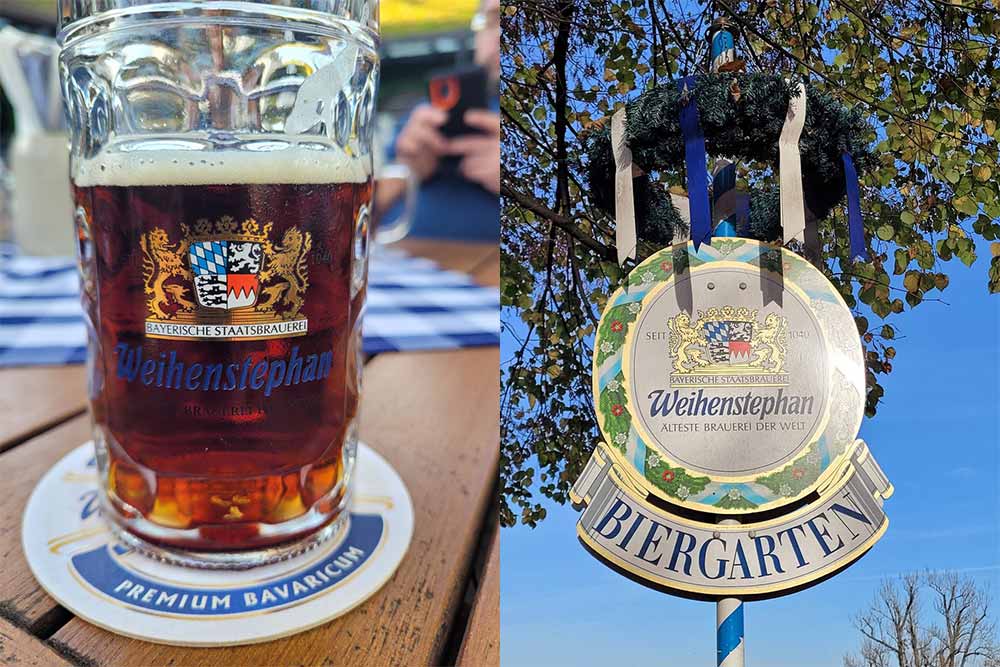
Weihenstephan | Photography courtesy of Ryan Pachmayer
Another of Germany’s three state-owned breweries, Weihenstephan, offers a captivating experience as a former monastery site and a current major school that includes brewing degrees and is set atop a hill, offering great views of the valley. Adding the top-notch beer and a quality restaurant to boot makes the brewery a can’t-miss spot on any visitor’s list.
Hofbrauhaus Freising (unrelated to the Munich brewery) is just across town, too, and makes some delicious beers served at its onsite restaurant.
The New Guard Breweries in Munich
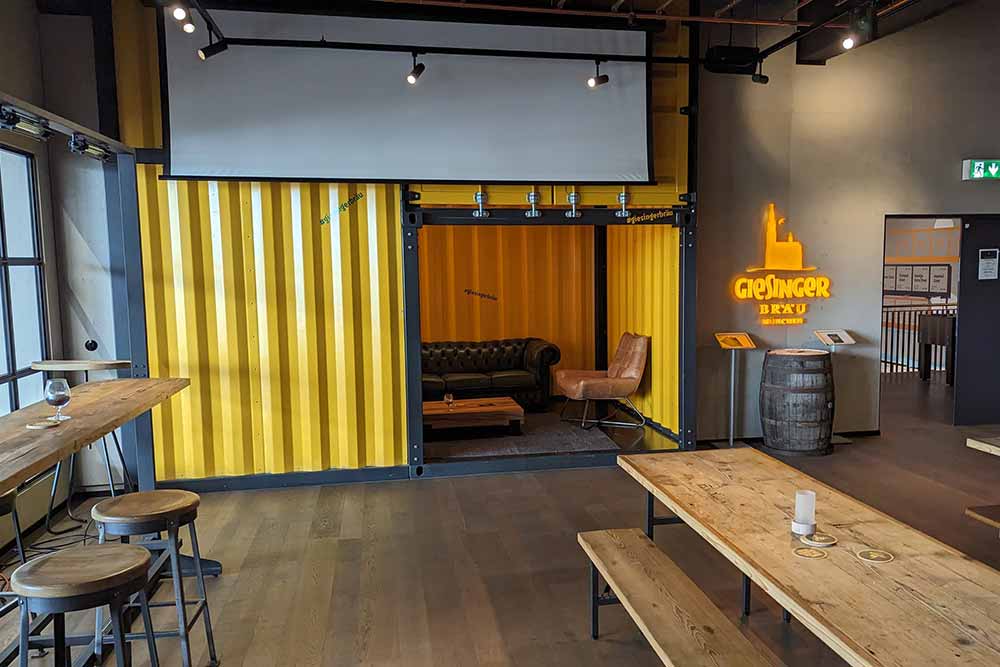
Giesinger Bräu | Photography courtesy of Ryan Pachmayer
Over the last fifteen years, Munich’s beer scene has welcomed newcomers into the fold. “Welcomed” may be a liberal use of the word when it comes to Giesinger Bräu, as few in the industry felt the brewery would amount to much in its infancy in 2006—especially considering it started in a garage. But fast forward to today, and Giesinger Bräu is Munich’s second largest privately owned brewery, behind only Augustiner.
Its classic unfiltered helles is lively and bold, a local favorite. During a brewery tour try the version brewed with water from a million-dollar 500-foot-deep well, or ask for the original version brewed at the Giesinger Bräustüberl location. I noticed myself returning to the filtered lager, a ridiculously drinkable beer with a great balance of flavor.
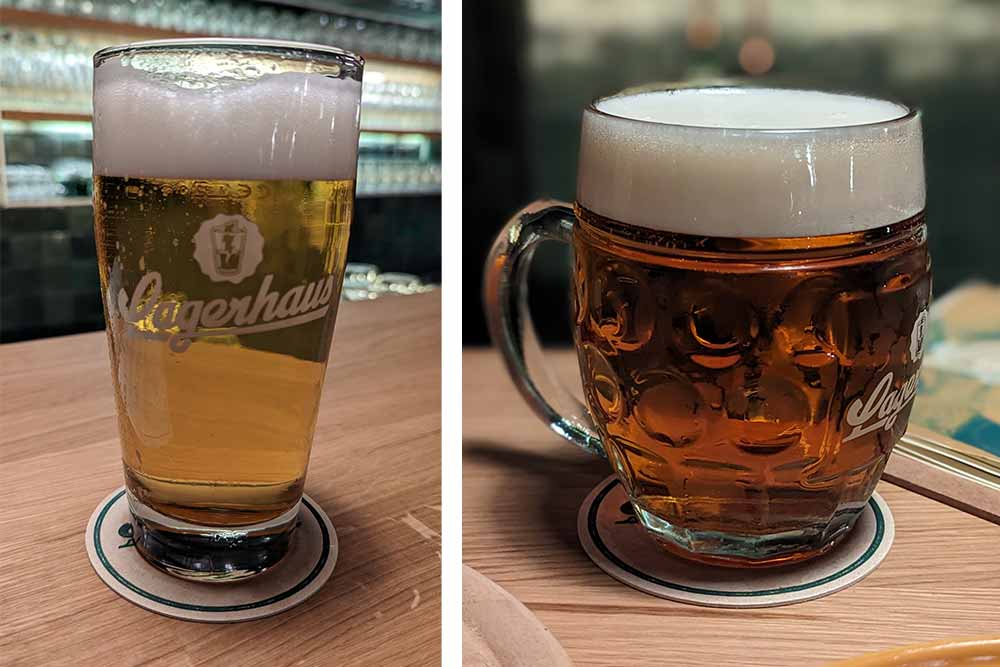
True Brew Lagerhaus Helles and Märzen | Photography courtesy of Ryan Pachmayer
Another place that impressed me was True Brew’s lager-only bar, Lagerhaus. I tend to drink a helles first at any new brewery in Munich—it’s not only the lightest beer in a portfolio but also one of the toughest styles to brew well consistently. Falling on the right side of the line between boring and interesting while still being free of unwanted flaws or the wrong type of esters while balancing the malt showcase with hop bitterness and overall drinkability is a tough job. True Brew’s helles passes that test with flying colors. The other beers in the lineup were also very good and paired well with the refreshingly eccentric food, which deviates from the classic German pub fare.
Further City Exploration
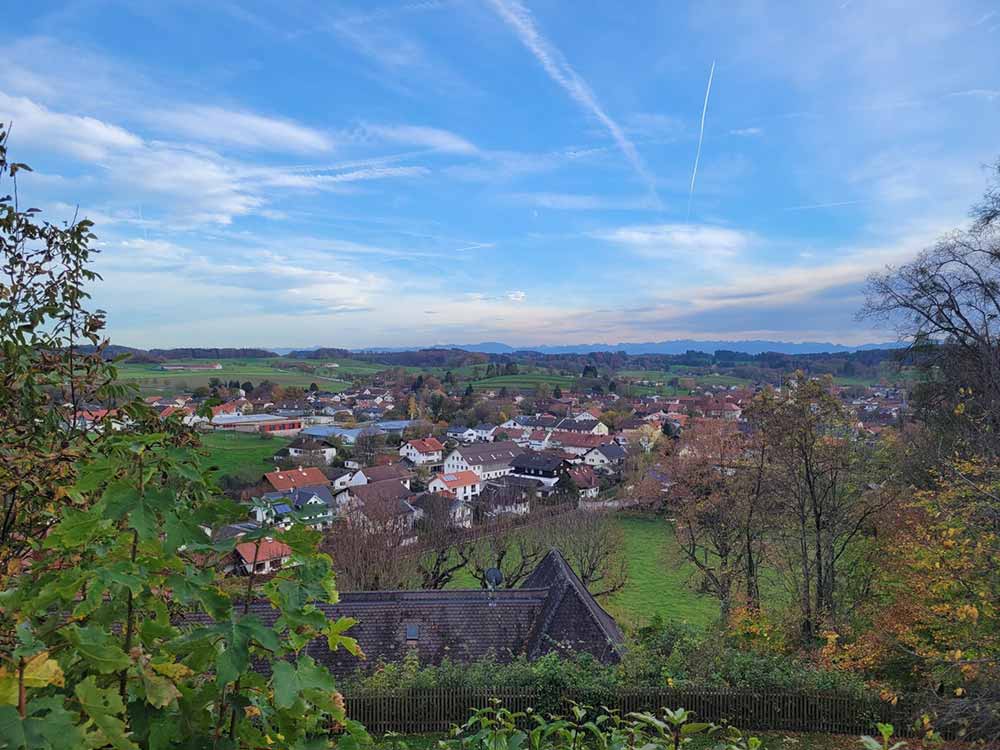
Photography courtesy of Ryan Pachmayer
Unless you plan to spend quite a bit of time in Munich, it can be tough to hit every destination outside of town. Munich is a great place if you simply want to experience some of the standout beers in a far fresher format than anywhere else outside the source.
Located in the shadow of the Lutheran church Frauenkirche Dresden, the Andechser am Dom has the Andechs lineup on draft and a good restaurant.
Tegernseer Tal Bräuhaus is a restaurant in the Old Town with a large range of Tegernseer Brauhaus beers available without spending most of your day traveling to and from the brewery.
For fresh Ayinger, you only have to walk across the street from the Central Station to the Italian restaurant Ca’D’oro. There, you will not only find Ayinger beers in fantastic shape and poured in the correct glassware but also delicious food.
Bitburger Premium Pils may not receive much attention in the United States, but a fresh example is second to none in the Northern German style, with its clear-cut bitterness, a hint of rich grainy malt, and dry finish. The beer is made quite a ways from Munich, but luckily, the Italian restaurant L’Osteria München Künstlerhaus is very close by, serving Bitburger alongside giant wood-fired pizzas for an excellent price. The servers may try to talk you into the more popular Augustiner, as it’s local and made down the street, but hold your ground and insist on that fresh Bitburger; you’ll be in for a real treat.
A fun stop near the Old Town is the Beer and Oktoberfest Museum. There, in one of the oldest buildings in the area, you’ll learn over several floors how the most famous beer festival in the world evolved from its start over 200 years ago to today. Also, if you ask nicely to take your fresh Augustiner with you, the staff in the basement bar may even let you.
For a taste of Franconia you can’t find anywhere else outside the region, visit HopDog. There, you’ll often find owner Gregor Einar Fransson slinging beers and hot dogs on nights and weekends. Fransson scours the Franconian countryside and brings in some of the absolute best beers of the region, taking meticulous care of these unfiltered gems.
A Matter of Taste
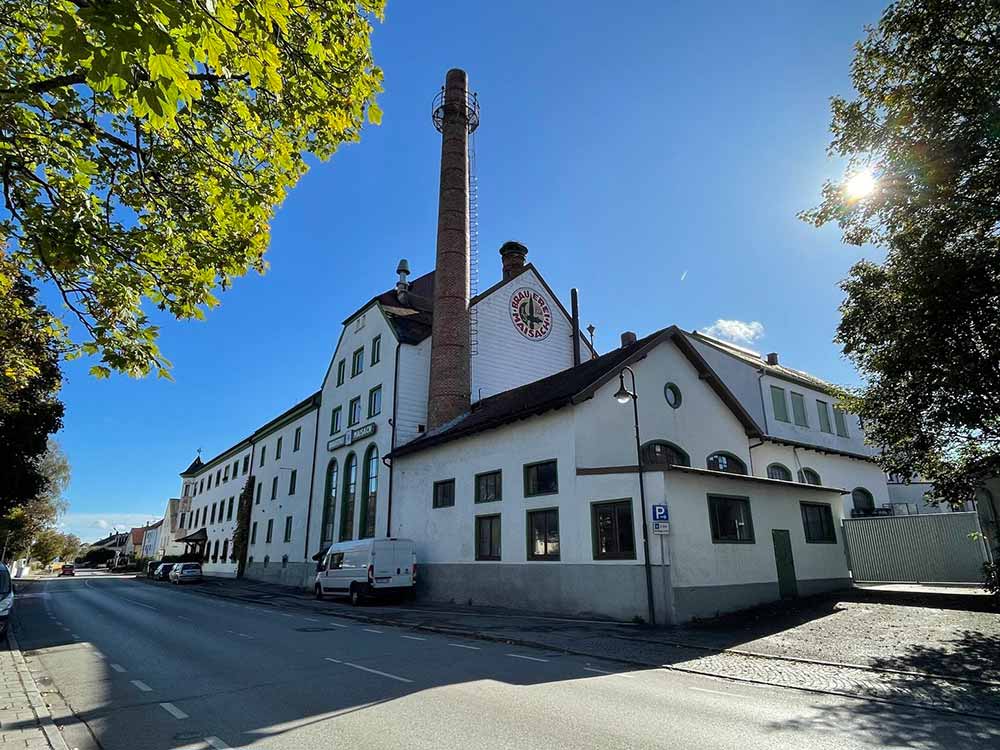
Brauerei Maisach | Photography courtesy of Ryan Pachmayer
After visiting some of the core list breweries, where you branch off will depend greatly on what you enjoy most.
If you enjoyed the half-day destination breweries like Andechs or Ayinger, Brauerei Maisach is only a thirty- to forty-five-minute train ride west from Munich Central Station.
Visitors often overlook this; luckily, BeerWanderers founder and local tour guide Rich Carbonara tipped me off about it. The brewery has a rich history, a classic look and feel, as well as some of the most delicious lagers around. The beers also pair well with the Bavarian pub food in the on-site restaurant.
For destinations that require closer to a full day’s commitment, Weltenburg Abbey and Private Landbrauerei Schönram are well worth the extra time. You can look into visiting Brauhaus Tegernsee as well.
If weissbier is more of your thing, König Ludwig Schlossbrauerei is about an hour west by train and offers a more full-bodied lineup of wheat beers.
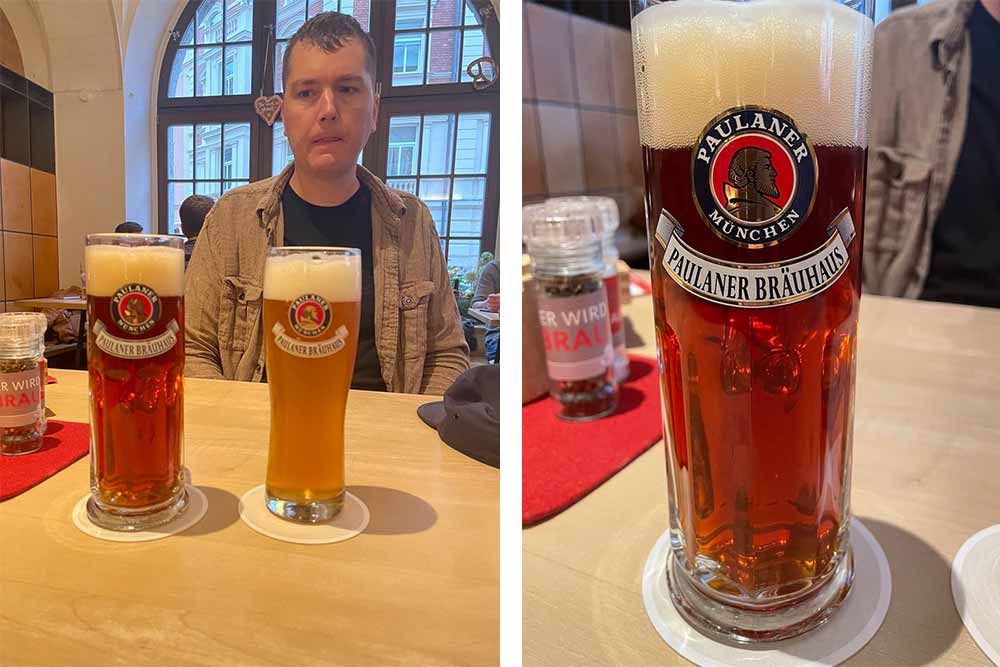
Paulaner Bräuhaus | Photography courtesy of Ryan Pachmayer
If you want to stay in town and have been enjoying the classic breweries and beers around town, consider a visit to the Paulaner Bräuhaus. It’s about a twenty-minute walk south of the Central Station or a short ride on public transportation. The zwickl is a worthwhile beer with a bit of a local following. Der Pschorr is another classic brewery found in the Old Town in a beautiful old building. Giesinger also has a cozy bar with a sidewalk patio just across the street.
If newer breweries making traditional styles is your thing, or you just want a solid option blocks from the Central Station, Schiller Bräu is an excellent choice. The helles is a good beer, but I found the dunkel particularly outstanding.
Another option is Tilmans Biere, about a twenty-five-minute walk south of the Central Station. Tilman’s has a unique twist on classic styles. For example, in addition to traditional noble hops, the helles uses Chinook hops from the Yakima region, and the dark beer uses some Kent Goldings from England. I was a touch skeptical coming in here, but I left pleasantly surprised. The modern take on these beers comes across as thoughtful, light-handed, and harmonious, and there just isn’t anything like this in Munich.
Munich isn’t the beer town it was decades ago. The city has managed to not only bring in innovative new breweries and beer styles that are very much worth your time, but it has also retained the classic charm, culture, and quality that so many travelers fell in love with decades ago. Consider this city on the shortlist for any beer-centric vacation.

